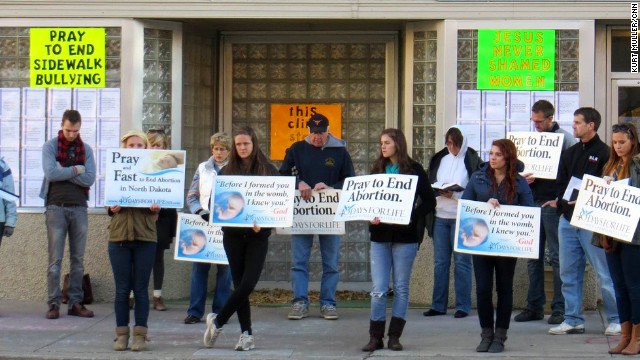Not A Waste Of Time: North Dakota Pro-Life Law May Prompt Supreme Court To Review Abortion Precedents

Earlier this week the 8th Circuit Court of Appeals struck down North Dakota’s pro-life “heartbeat bill” which would ban abortions after a baby’s heartbeat is detected in the womb. Those who are pro-abortion were quick to declare victory, deriding the passage of the law as a waste of time and money, but there are elements in the ruling from the 8th circuit which should give them pause.
This topic has already been covered on SAB by former state lawmaker Bette Grande, who was one of the sponsors of the legislation, and Chris Dodson from the Catholic Conference, and while they made good points I think they’re bolstered by this more objective analysis from Lyle Denniston at the SCOTUS Blog.
An excerpt:
The U.S. Court of Appeals for the Eighth Circuit, in a new ruling on Wednesday involving the nation’s most restrictive abortion control law, argued that the so-called “fetal viability” approach has become “unsatisfactory” because it has not kept pace with changes in fetal medicine. Although the North Dakota law at issued was struck down, the three-judge panel made it clear it ruled that way because the Court had given it no choice, but that it was troubled at having to do so. State legislatures, not courts, should be making decisions about the state of medical science, it said.
This marked the second time in recent months that the same three Eighth Circuit judges have raised doubts about using fetal viability as the crucial factor in analyzing state power to curtail or bar abortions. They did so in a ruling in May, striking down a less restrictive Arkansas law. In that case, the state’s lawyers had not challenged the testimony on when a developing fetus would be viable. The panel thus said that lawyers, especially for a state defending an abortion ban, had a special duty to put before a court the latest in fetal medicine findings. …
This time, with North Dakota’s lawyers strongly disputing the viability point, those judges moved further in their critique, directly calling on the Supreme Court to reconsider. “Good reasons exist,” it said, “for the Court to reevaluate its jurisprudence….To begin, the Court’s viability standard has proven unsatisfactory because it gives too little consideration” to a goal that the Justices themselves have said they support, protecting a state’s “substantial interest in potential life throughout pregnancy.”
In other words, the 8th Circuit is arguing that while legal precedent is what it is, it is also not 1973 any more (the year Roe vs. Wade was decided). There have been major advancements in medical science since then which challenge the legal precedents on abortion.
What the 8th Circuit is arguing is that what those advancements mean for the question of when life begins, and the legality of abortion more broadly, is something that should be left to state legislatures not the courts.
That’s something of an earthquake for the legal foundation of on-demand abortion, and it’s a victory for the pro-life movement however their opponents may want to spin it.
North Dakota’s “heartbeat bill” might not be the law any time son, but it has helped open up some avenues for courts to decide post-Roe vs. Wade that the abortion issue should be left up to the states once again.




